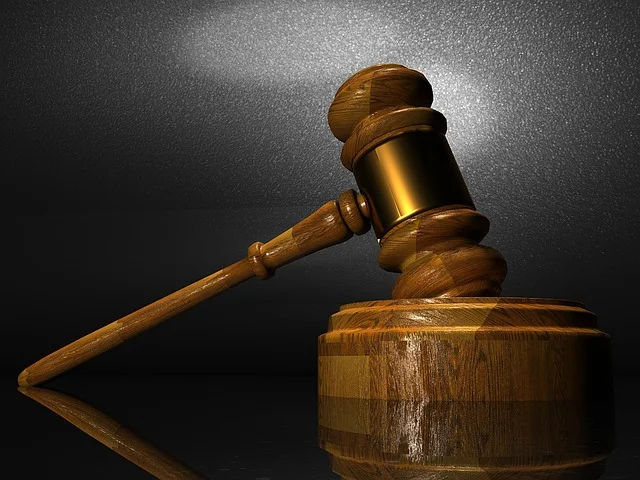Asset protection is not a one-time thing. It is something that you should review every six months or so, as your situation changes. Once we graduate from college, our main goal is to earn money. Gaining money and assets becomes our goal throughout life. We need money to pay bills and buy the things we need, such as food and shelter. As we grow our bank accounts, we may also acquire vehicles, houses and other assets. So does the need to inspect our financial foundation: our asset protection plan.

Working 40-hour weeks and acquiring money and assets is not the only thing we need to be concerned with. We also need to think about how to protect these assets in the event of a lawsuit…and keeping it up to date as your financial picture evolves.
Why Update My Asset Protection Plan?
Things change. You buy a house, sell it and buy another. You change cars, change banks, perhaps, and your business and investment portfolio grows. You start an additional business. You buy one rental property, then another. As you do this, the legal tools that you need to protect yourself from lawsuits constantly change and grow. Asset protection is not a set it and forget it phenomenon. Each time you buy a rental property, put it into another LLC. That way if one property experiences liability, the lawsuit won’t take your entire real estate portfolio.
You may be wondering why you need to protect your assets in the first place. It’s not like anyone is just suddenly going to take everything from you, right? Wrong! Just one legal action can allow an injured party to possess everything you own – not just your business assets, but your home, vehicles, expensive collections and everything else you cherish. And as you grow, so should your asset protection strategy.
You Can Get Sued
You may think that nobody would sue you. But chances are, if you own a business or appear wealthy, someone will eventually try to sue you. The average person in the US experience seven lawsuits in his or her lifetime. In this litigious world, you become a target for frivolous lawsuits – even if you haven’t actually done anything illegal.
If you’re a successful business owner or a millionaire through some other means – and want to stay that way – you need to protect yourself. That involves using asset protection, which we’ll discuss later. First, here’s a look at some of the threats you may encounter.
Professional Liability Sources
Successful business owners are often targets for lawsuits. Due to the numerous insurance and legal issues involved in running a business, here are some types of professional liability that you might encounter, and to be aware of as your needs change:
- Employment discrimination. Even though we’re in the 21st century now, race and gender inequality issues are still prevalent in the workplace. You could get sued for laying off a pregnant woman, failing to give a woman a promotion or firing an African-American man – on race or gender were not the basis of your decision.
- Sexual harassment. An innocent joke or even a sincere compliment can be taken the wrong way, and cause an employee to sue you for sexual harassment.
- Trademark infringement. Using someone else’s brand name or a derivation of their logo – even a moniker of a popular brand or a cartoon character – can land you in legal hot water.
- Breach of contract. If you enter into a contract with a customer, be prepared to live up to it. If you’re a contractor and fail to finish a client’s home on time – for no good reason – then the client could sue you.
- Defective products. If you create a product that malfunctions and causes harm to the customer, he or she can file a lawsuit and sue you for damages.
- Vehicle accidents. If your salesperson is driving a company vehicle while on the clock and hits a pedestrian, the salesperson may be liable, but guess who will end up paying? The person with the money – you.
- Workers’ compensation accidents. Even if you have workers’ compensation insurance, you’ll still be on the hook for medical payments if your employee is injured while performing his or her job duties.
- Slip and fall cases. If you own a supermarket and a customer slips and injures herself on spilled milk, her lawyer will be coming after you to pay her medical bills – even if you didn’t know about the spill.
- Doctors, lawyers and financial advisors can all get sued for causing physical, emotional or financial harm.

Personal Liability Sources
The following types of lawsuits can result in seizure of your personal assets:
- While a divorce is commonly known as a dissolution of a marriage, it’s also a type of lawsuit. If your spouse initiates a divorce, he or she can go after your income and assets. He or she can also sue for alimony and child support.
- Car crash. If you or your teen child cause a car accident, you could be liable for the victim’s injuries.
- Vicarious liability. If you have a business and your employee causes an accident, the injured party could sue you, personally.
- Employee actions. If an employee causes damage, the company can be held liable. Without proper protection, your personal assets may be affected as a result.
- Social host liability. If you serve alcohol at a party and then a drunk guest leaves and causes an accident, you could be at fault for providing the alcohol.
- Credit card bills and medical bills can all lead to excessive debt. If you lose your job, you may be unable to pay these debts and creditors could sue you.
- The bank could seize your home if you fail to make your monthly mortgage payments.
As your business grows, so does your exposure to the above risks.
Types of Asset Protection
No matter who you are or what you own, you can benefit from one or more of these forms of asset protection:
- Insurance. All of us will need insurance at some point of your lives, whether it’s medical, auto, homeowners or long-term care. The problem is that the insurance companies write the policies to protect themselves, not you. There are tremendous exceptions written into today’s policies. Ever try to file a claim? You will notice that if there is a way the company can wiggle out of paying a claim, they will. One insurance executive told his adjusters to deny every claim and to make the policyholders sue for enforcement.
- Business entities. If you have a business, separating the company’s assets from your personal ones is a must. Otherwise, you could potentially lose everything you own over a business dispute. Sole proprietorships and general partnerships offer virtually no protection, so opt for either of these:
- Corporation – Corporations are a great form of asset protection. Corporate law contains legal provisions to shield your personal assets in the event of a business lawsuit. As you add another business, add another company so they won’t all fall like a house of cards with one lawsuit. Segment one business from another.
- Limited liability company – With a limited liability company, you get the benefits of asset protection, but without the ownership restrictions that a corporation has. This is a perfect tool to own investments such as stock portfolios, cash and real estate investments. Stock and cash are safe assets and may all go into one account if not also associated with a business. It is best to separate different parcels of real estate into separate LLCs in order to cubbyhole the liability.
- Retirement account. A retirement account is helpful for protecting long-term savings. Under federal law, up to $1 million in assets are protected, while for retirement plans, the protection is unlimited. However, your state law may be different, as laws in this regard vary by state.
- Life insurance/annuities. You may not need a special asset protection method for your cash value life insurance and annuities They may already be protected, depending on your state of residence. Some states are more liberal – like Florida, which offers unlimited protection – while others only protect small amounts ($500 or so).
- Homestead exemption. This allows you to hold onto at least some of your home equity should you ever have to file for bankruptcy. Creditors will not be able to touch this money. This applies to your residence only. Investment properties are ineligible. Some states are more generous than others. If your state does, you may want to consider making additional payments toward your principal to protect this equity.
- Real estate title. How your home is titled can also affect the protection of your home equity. “Tenants by the entirety” means that if a creditor sues your spouse and you are not, you won’t be forced to give up your share of the home. But this is only available in about half of all states. A common title is “joint tenants with rights of survivorship,” which does not usually protect your equity, depending on the laws in your state.
- Irrevocable trust. An irrevocable trust or “asset protection trust” is a great tool for securing your assets and planning your estate. Once you put assets into an irrevocable trust, you no longer own them, so, as long as it is set up properly, creditors cannot touch them. This works well for money and assets you no longer use. You can list family members as the beneficiaries, so they can benefit from them after you have passed. The strongest of these is the offshore trust.

Review Your Asset Protection Plan
…Sooner Rather Than Later
If you’re already being sued, it’s not too late to protect your assets. The courts may assume you’re using an asset protection tool to avoid losing your assets, and this considered a fraudulent transfer. But this is a civil matter, not a criminal one. So it’s better to try than sit back and be a victim.
You don’t want to draw unavoidable attention to yourself in a way that makes you a lawsuit target. Neither is it ideal to make last-minute transfers that leave you vulnerable to court scrutiny. So, somebody will sue you. The best time to choose a form of asset protection is now – when the threat of a lawsuit is not imminent. It’s better to be safe than sorry.
Without protection, you could lose your business, home, money, vehicles – everything you own. A situation like this also a deeply emotional impact. As such, you could end up losing your family over a stressful legal issue gone wrong.
Options
There are many options when it comes to protecting your assets. There are asset protection trusts. There are foundations. In fact, we have an article entitled, Trust or Foundation, Which is Better? There are domestic and offshore LLCs to protect assets from lawsuits. Use the numbers above to speak with an expert or fill out a free consultation form. Research your options.
Find the Right Asset Protection Strategy
Each situation is unique. Not everyone has the same types and number of assets. In addition, each state has its own set of rules.
There is not one method of asset protection that is one-size-fits-all. You will likely need multiple methods of asset protection to accomplish your goals and your needs will change as your finances change. Get a hold of an asset protection consultant to determine which methods of asset protection will help you preserve your assets now and for the rest of your life. You’ll have peace of mind today, tomorrow and decades down the road.
Linsay Thomas, Technical Editor, contributing author



